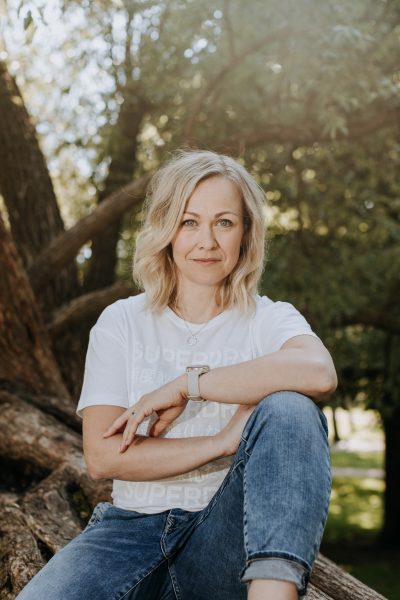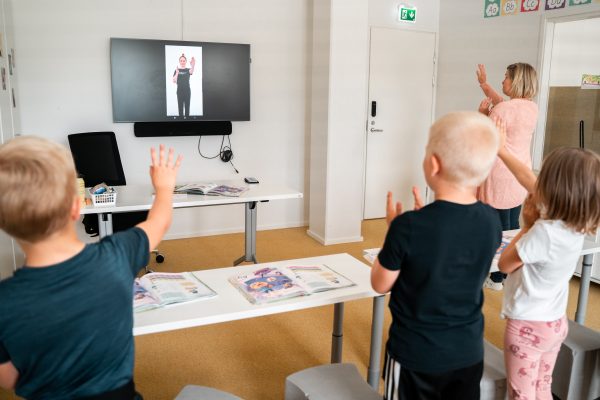Presenting Kuopio Health members: Geego Kids Oy
Geego Kids increases children’s physical activity
Geego Kids Oy is a company founded in 2019 and a learning application that aims to teach physical skills to children aged 4–9 years. Geego Kids helps children develop necessary physical skills effectively, easily and in an engaging way using a platform full of tools that help children find the joy of exercise. Geego’s vision is to be a globally recognized innovative learning game that enables children to acquire physical skills and awakens their passion for sports and exercise. Geego allows all children regardless of their financial situation or geographical location to learn both physical and life skills while having fun! Geego’s mission is to inspire children to adopt a physically active lifestyle through a gamified experience and elements of a digital world. Geego is not just about gaming; instead, children are actively involved in developing vital skills, such as basic motor skills, ball game and equipment skills and movement control.
“I originally founded the company together with my husband. For several years, we had been touring the world as motorcycle stunt riders and when we returned to Finland, we first established an advertising agency and later founded Geego Kids. My educational background is in a university of technology and my family members also have competence in the field. The company brings together IT, digitalisation and children’s welfare”, says Heidi Leivo, the company’s co-founder and CEO.

A dramatic decline in physical activity
“I’ve been always spending a lot of time with children, guiding and coaching them. My background is in track and field sports and I’ve been surrounded by a lot of encouragement for physical activity. I’ve noticed what has happened to patience and the joy of exercise. It would be very important that children find the common thread and their own passion for exercise, whether through parkour, football, dance or magic tricks, for instance. Especially now that leisure activities are becoming increasingly expensive and children have to choose their hobbies at a relatively young age, their strengths may be left undiscovered. This makes it important to enable children to experiment with various sports and realise that you learn and become capable through practising”, Leivo points out.
While children today continue to love being active, the environment where they grow up has been transformed and sedentary lifestyles have become too easy. According to research, the current physical fitness level of 40% of 12-year-old children is hampering their coping in daily life. Recommendations state that, for example, kindergarten-aged children should engage in physical activities for at least three hours per day. It is possible to intervene early in the cycle of sedentariness by acquainting children and young people with physical activities that enable positive experiences.
“We’re faced with the challenge that we’re competing with instructed exercise classes, and parents are often under the impression that this will suffice as their child’s physical activity. The idea that you go to training sessions to learn and what you should learn has somewhat disappeared and the total amount of physical activity ends up being regretfully low. To rise up to this challenge, we also need the public sector’s support. We may not have adequately understood the full impact of screen time on children’s activity. Physical activity and calming down should be integrated into children’s school days. Many studies have pointed out that during physical activities, children not only learn motor skills but also acquire mathematical skills and patience.”
“I’d like to think about the Geego app as a sort of textbook that children start using in their day-care centres and schools and continue this use at home. We will probably also enter the consumer market at some point, but first, our focus is on building the phenomenon and our brand and through this, raising awareness in households. Even if we remove mobile phones from schools, children continue to have so much screen time that homes will also need a tool to increase physical activity. Although this is a digital application, all the exercises take place in the real world. The children do not even need phones of their own, as their parents can use the app for support”, Leivo continues.

Extensive collaboration network
The company responsible for developing the Geego app is Fraktio Oy, whose input Geego has been highly satisfied with. Fraktio has competence in various fields and offers services to companies of different sizes across many industries. The app features include Geego City, where users can go and learn various skills in different areas. It includes activities such as the Balancing Rock and Jumping Plaza, but as a whole, everything has been planned to enable children to gradually practise their skills. The exercises also always include small incentives that enable the child to make observations on their success. The part intended for schools is different and enables children to acquire emotional competence and maths, for example, through physical activity. The use of the app has been made as easy as possible for teachers and they have been delighted by having such well-thought-out content.
“While we were unable to pilot Geego in Finland, we found a partner in Sweden through the City Of Helsingborg’s Director of Welfare and carried out the pilot in 20 schools around the city.”
“I had initially attempted to develop the app for slightly older children but shifted the focus to a younger group thanks to the feedback received from Sweden. At this point, I realised that I needed a partner. The Varala Sport Institute had the courage to get involved in the startup and they became a partner in 2023. Varala has a desire to influence children’s welfare and physical activity and they are also involved in producing content for the app. We also shared a view that there are not enough people in primary healthcare and early childhood education and care and that we must learn to make use of digital applications.”
“We also engage in widespread cooperation with others and Geego is currently in the process of launching an impact study together with universities. The app also requires a lot of content and language versions, for which we are collaborating with the University of Eastern Finland. The latest app version is being piloted with the City of Tampere, where Geego has been integrated into recess and break exercise activities.
“Together with the Wellbeing Services County of Pirkanmaa, we just launched a pilot that involves testing the app for supporting 6–8-year-old children with ADHD. Geego will include remote physical education classes where we get to test which content is popular among users and how we need to develop the app to also learn more about neurodivergent children.”
Kuopio Health understands its members’ needs
“Our cooperation with the Kuopio Health ecosystem began when we met Development Manager Kimmo Solehmainen at the Varala Sport Institute’s testbed days. This also enabled us to get EDIH funding. The European Digital Innovation Hub (EDIH) HealthHub Finland is a consortium that helps SMEs with digitalisation and the development of new business based on health data. It brings together top experts across the country to help companies, lowering the threshold for creating new innovations based on health data. We’ve had a great experience with the project, as it has involved tackling concrete issues and we’ve received help with our product development. Projects tend to come and go, whereas there is often a lack of interest in the further development of issues.”
“Kuopio Health is an ecosystem that has clearly understood the needs of its members and has done a good job of raising its profile in the health and welfare sector. The ecosystem understands business and product development, knows the challenges of its members and actively works to find solutions. At the same time, there is a desire to create tangible impacts and we hope that Kuopio Health can continue to play an active role in discussions with the public sector. The public sector appears to have some problems in attitudes towards companies and the solutions they provide. For example, I find them referring to the new products created by companies as “gadgets” as extremely offensive and it’s clear that this attitude prevents them from seeing that these “gadgets” may actually serve as future solutions to the challenges that run rampant in healthcare. My wish is that we don’t hesitate to address this problem and that we’ll see new solutions as a matter of pride that creates growth in Finland”, Leivo concludes.